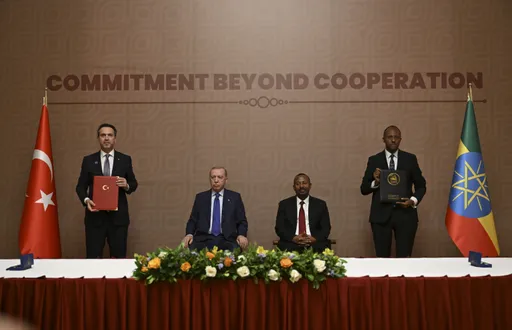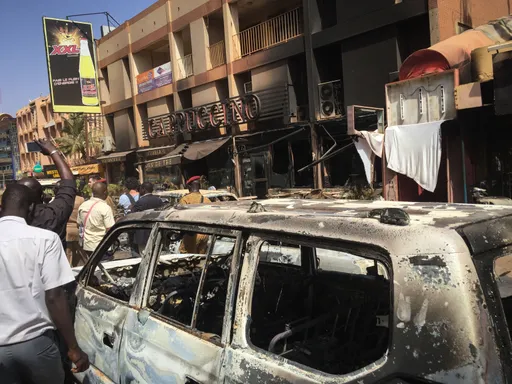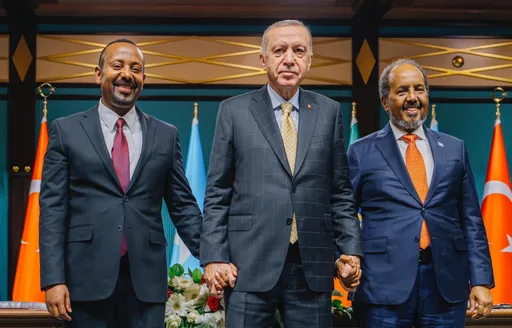By Brian Okoth
Herbert Hoover, the 31st President (1929-1933) of the United States, once said: "Children are our most valuable resource."
Nowhere would this resonate more than in Africa, where children under the age of 18 number more than 650 million — nearly half the entire continent's population of 1.4 billion people.
June 16 of every year is dedicated to celebrating the African child, who has overcome several challenges – historical, cultural, economic and political in nature – to earn honour and a voice on the global stage.
Significant progress has been recorded in African children's access to education, with net enrolment in primary education in Sub-Saharan Africa increasing to 79 per cent in 2018, compared to 60 per cent in 2000.
Dr. Joan Nyanyuki, the executive director of the African Child Policy Forum, attributes the progress in education to governments embracing basic education and instituting policies that favour learning in schools.
"There are now more children in Africa with access to basic education. In Zambia, for example, there is a free primary and secondary education programme. In many other African countries, primary education has been made compulsory," she tells TRT Afrika.
Nyanyuki believes that the message sent out during various African nations' fight for self-rule – that only education would lift the continent and its people out of poverty – played a game-changing role in the adoption of learning in schools.
Digital tightrope
The theme for this year’s International Day of the African Child is the Rights of the Child in the Digital Environment.
Home internet access among children in Africa, however, remains low, with only 13 per cent of minors in Eastern and Southern Africa being able to go online in any form.
In West and Central Africa, the figure is much lower at 5 per cent, a UNICEF report shows. In the Middle East and North Africa, only 25 per cent of the youth have home internet.
Nyanyuki sees internet connectivity for children as a double-edged sword. "On one side, it has improved access to information, facilitated communication, made access to learning materials easier, exposed the African child to the rest of the world, and enabled remote learning," she says.
"On the other hand, it has exposed children to different forms of violence and manipulation, including sexual exploitation, graphic material, and bullying."
Experts say there is a need to sensitise children – especially those from Africa – on their digital rights, and also come up with policies that protect them from exploitation on the digital platforms.
Then there is the United Nations Convention, which states that every government has the obligation to promote, respect, protect and fulfil all children's rights in the digital environment.
Data protection
In an online environment, the primary rights of the child include non-discrimination, best interests, right to life, survival and development, as well as respect for their views.
“The African child battles unique challenges when it comes to equal and effective access to the digital environment in ways that are meaningful. Unlike children from other continents, quite a number of African countries are still grappling with power shortage, sporadic political unrest and lack of internet connection," says Nyanyuki.
African nations have made commendable progress in ensuring that children who have access to digital devices are protected from harm, although studies show that more work needs to be done.
For example, in 2019, Kenya passed a law stating that personal information about children cannot be processed without the consent of a child's parent or legal guardian, and in a manner that protects and promotes the child's rights and best interests.
South Africa jealously guards children's rights in the digital space, while Ghana enacted the Data Protection Act in 2012 to cushion minors from online abuse.
Approximately 32 African countries have enacted data protection laws, but not all explicitly protect children.
The African Union (AU) Agenda for Children 2040, which aims to foster a child rights-friendly Africa, asks member states to provide children with universal access to affordable information and communication technology devices, content, and connectivity, as well as incorporate these elements into educational curricula.
Search engines
Florence Ogonjo and Rachel Achieng of Strathmore University in Kenya say in a journal that children, parents and teachers need to be sensitised about online safety and responsible use of information and communication technologies (ICT) by minors.
Prof. Julia Sloth-Nielsen, chairperson of Children's Rights in the Developing World at the University of Leiden, the Netherlands, said during a recent UNICEF presentation that mass media should also take the lead in the sensitisation campaign.
She also proposed that automated search engines should not direct children first to paid content at the cost of right to information. "Filters and other barriers should be provided by law, and be proportionate."
Maxim Murungweni, project coordinator for Child Helpline International in Eastern and Southern Africa, tells TRT Afrika that sharing any negative information online about children risks affecting them for the rest of their lives because "human beings forget, but the internet does not".
Tragic history
The International Day of the African Child has its roots in an unfortunate incident that occurred on June 16, 1976 in Soweto, South Africa.
On that day, some 20,000 students took to the streets of Soweto demanding to be taught in a language they were familiar with.
Armed police officers under the apartheid regime responded by killing hundreds of protesters. The South African government would later – after attaining independence – set aside June 16 of every year as public holiday.
The date was later recognised as the International Day of the African Child after the Organisation of African Unity (OAU) agreed to celebrate the African child on June 16 every year.
The first international day was observed in 1991. The day focuses attention on the barriers African children face in order to receive a quality education.
Protest letter
Prof. Enos Ngutshane, the director of the Institute of Retirement Funds Africa, was part of the generation that protested against the language imposition in South Africa in 1976.
He tells TRT Afrika that the Dutch colonialists had sought to replace English in schools with the Afrikaans language.
"I was arrested two days before June 16 for writing a protest letter to the then-minister of apartheid after learning that the establishment was planning to change the language of instruction in schools," he recalls.
He was charged with incitement on June 16, but the state dropped his case following a backlash over the killings that took place on protest day.
"Police officers were shooting the children indiscriminately. Several neighbours of mine lost their loved ones in the shooting," says Ngutshane.
Education, a priority
Around 98 million children in Sub-Saharan Africa between the ages of six and 18 are still out of school, UNESCO says in a 2022 report.
The continent has, however, managed to eliminate the gender gap in access to education, with the number of female learners on par with that of male learners.
There has also been an improvement in the number of children in primary school. In 2019, thirty-four (34) million children in primary education age in Africa were not enrolled in school. This number decreased from 45 million in 2000.
“We need a global mobilisation to place education at the top of the international agenda,” Audrey Azoulay, the Director-General of UNESCO, said in September 2022.
Morocco, Egypt, Zambia, Kenya, Zimbabwe, Malawi, Burundi and Lesotho are some of the countries on the continent that offer free education in public primary schools.
When Tanzania introduced the free primary and secondary education programme in 2014, there was a significant drop in the number of street children, suggesting that more minors are on the streets because of poverty.
Africa's future
Other key challenges facing the African child today include insufficient access to healthcare, child labour, malnutrition, sex exploitation, domestic violence, conflict and homelessness.
"Governments in Africa should ensure they allocate a significant fraction of their budgets to children’s welfare. There is evidence suggesting countries that invest heavily on children do better economically, because they are investing in the right resource for the future," says Nyanyuki.
Ngutshane echoes the sentiment expressed by former US President, Herbert Hoover, many decades ago. He says: "My message to the African child is: please get yourself educated like the [South African] class of 1976, because we depend on you as our future leaders. This entire continent has to be driven by you."




























